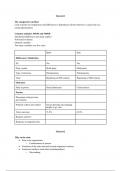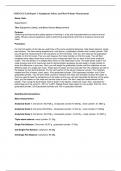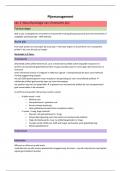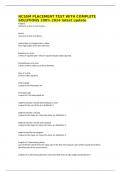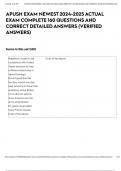Samenvatting
Summary Core Module: Comparative Politics, UvA
- Vak
- Instelling
This document provides notes and summaries of the lectures, tutorial discussions, and professor insights. It includes the most essential elements to remember from the course readings but does not go in-depth into each. With this summary, I received 7 and 8/10 for the take-home exams and finished th...
[Meer zien]
